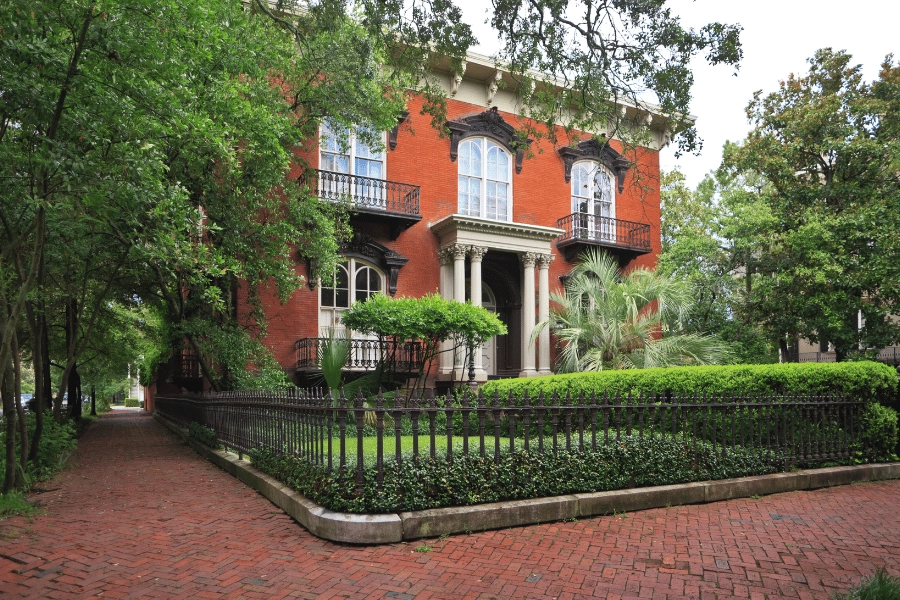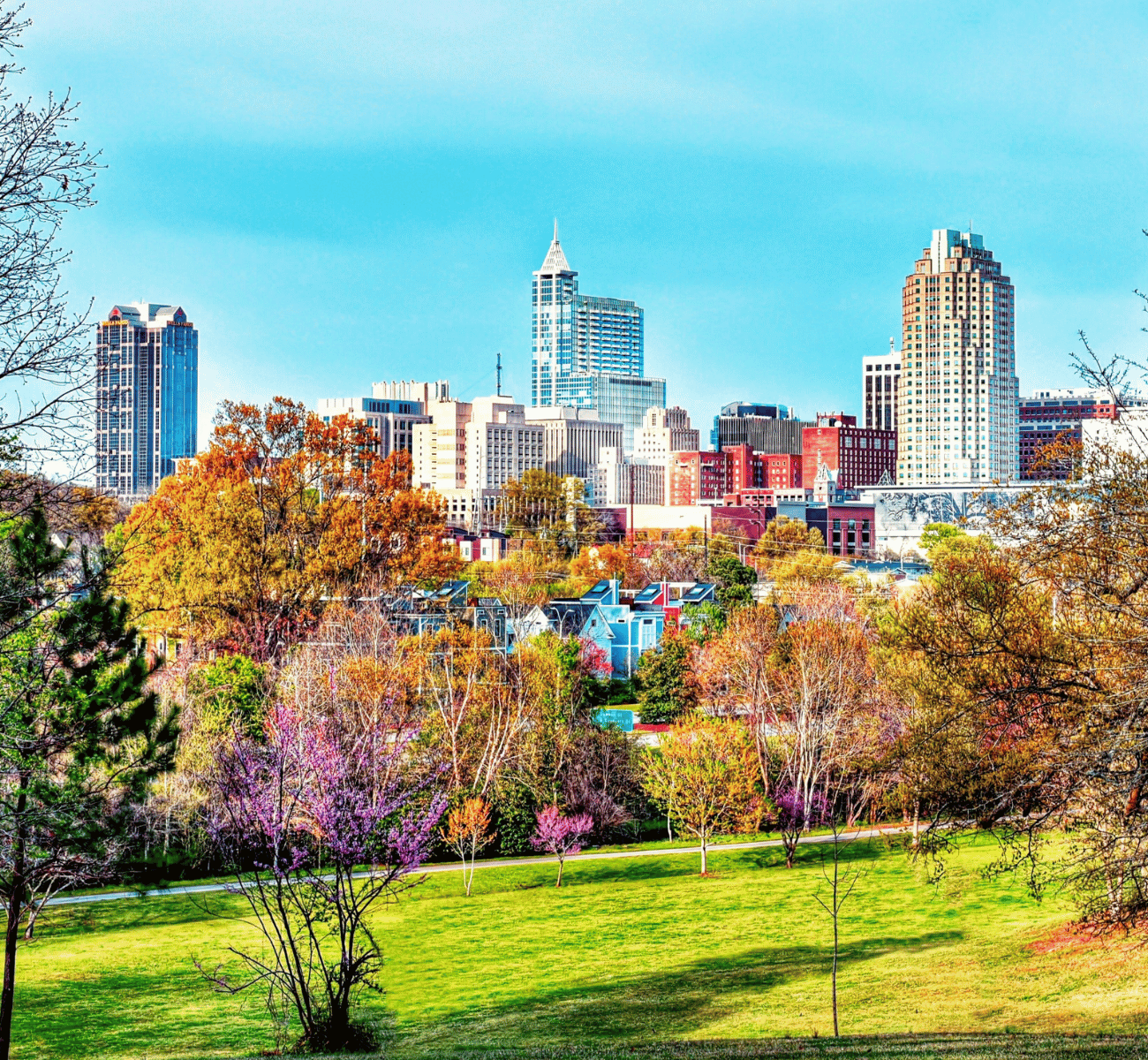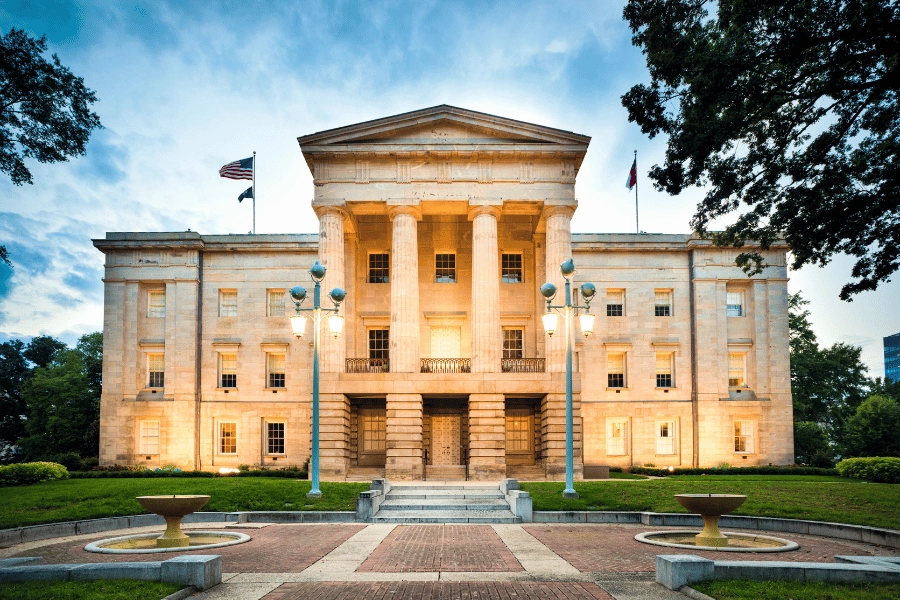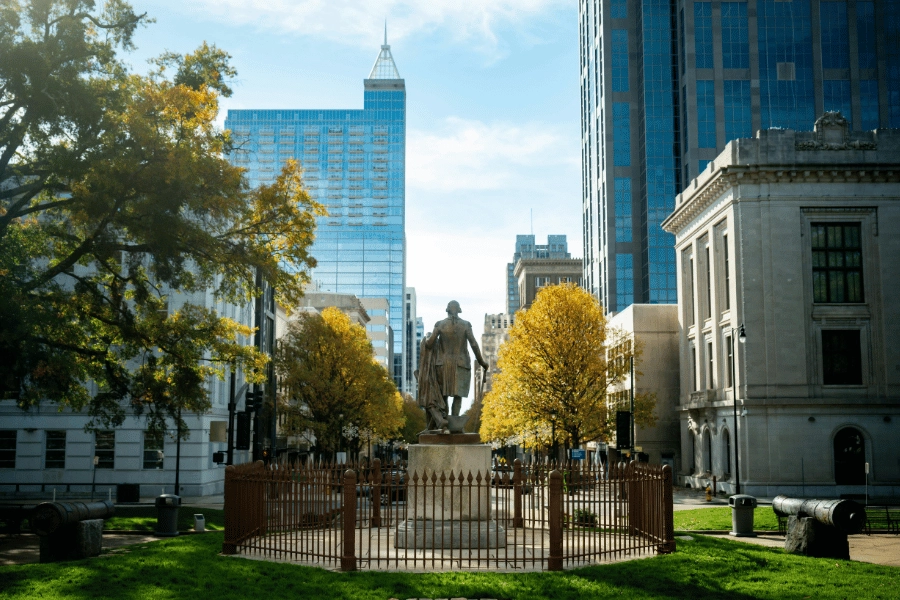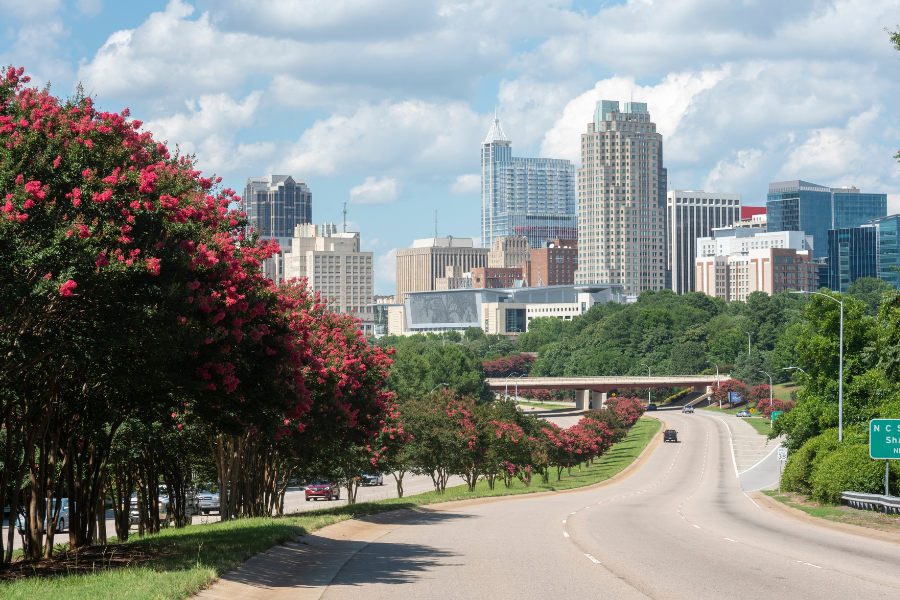Buying a Historic Home: Pros and Cons
Are you thinking about purchasing a historic home? Here are ten pros and cons of living in a historic house!
There's something undeniably enchanting about historic homes. From the hand-carved woodwork and original hardwood floors to the stories embedded in every brick and beam, these properties offer a connection to the past that new construction simply cannot replicate.
For homebuyers considering a move to Raleigh, the city's wealth of historic neighborhoods and over 170 historic sites presents an attractive alternative to modern subdivisions. However, purchasing a historic home is a decision that requires careful consideration beyond aesthetic appeal.
Most homebuyers who purchase historic homes do so for their historical significance and the hopes of making a good investment. According to the National Register of Historic Places, to be recognized as a historic property, a home has to be at least 50 years old and associated with significant historical events or individuals.
While historic homes can offer unique financial advantages, preservation opportunities, and a sense of community unlike any other, they also come with distinctive challenges that modern homeowners may not anticipate. Understanding both the benefits and potential drawbacks is essential for making an informed decision that aligns with your lifestyle, budget, and long-term goals.
Whether you are drawn to the architectural integrity of a Victorian mansion or the cozy charm of a Craftsman bungalow, this guide will help you navigate the realities of historic home ownership in Raleigh.
Let's explore the ten most important pros and cons you should know before leaping into preserving a piece of Raleigh's architectural heritage.
Check out these advantages and disadvantages of buying a historic home
1. Pro: Tax Incentives and Financial Benefits
One of the most significant advantages of buying a historic home is the many tax incentives associated with it. Most states offer tax incentives for rehabilitating historic properties, and these incentives are easy to obtain.
At the federal level, the Historic Preservation Tax Incentives program offers a 20% income tax credit for the rehabilitation of historic, income-producing buildings. Applications for pending renovations are available through the National Park Service, and this tax incentive will come into effect as soon as the application is approved.
It is important to note that this tax incentive has catches, such as the requirement that the property generate income to benefit from it. The Federal Historic Preservation Tax Incentive is a famous tax break for bed and breakfasts.
Renovations to the historic home must also be consistent with the property's historic character to be eligible for the 20% credit offered through the program. Considered one of the community's most successful and cost-effective revitalization programs, all applications can be fully submitted online.
For owner-occupied properties, many municipalities and states offer property tax freezes, reductions, or credits that can significantly lower your annual tax burden. In North Carolina, qualifying historic properties may be eligible for property tax relief through local historic district designations, which can mean substantial savings over the life of your ownership.
The North Carolina State Historic Preservation Office offers rehabilitation tax credits for owner-occupied residential properties. Homeowners may receive a 15% state tax credit for qualified properties undergoing rehabilitation.
Here is what is required to become eligible for the State Tax Credit:
- The property must be listed on the National Register of Historic Places
- The rehabilitation must exceed $10,000 within 24 months
- Rehabilitation expenses are limited to $150,000, with a maximum tax credit of $22,500
- One rehabilitation project can be claimed once every five years for this program
- All rehabilitation work must meet standards set in place by The Secretary of the Interior's Standards for Rehabilitation
2. Pro: Preserving History and Cultural Heritage
When you purchase a historic home, you become a steward of architectural and cultural history. These properties represent the craftsmanship, design sensibilities, and social history of their era.
As a historic homeowner, you ultimately take on the responsibility to protect its historical significance. If you love history, purchasing a historic house in a vibrant neighborhood is a great way to embrace its character and uniqueness.
By maintaining and restoring a historic home, you are actively preserving its unique character and ensuring that future generations can appreciate the city's architectural legacy. This sense of purpose and contribution to the community can be deeply fulfilling for homeowners who value heritage and tradition.
Raleigh has many historical sites throughout the city and its surrounding areas, and there have been many historic homes that have been maintained and rehabilitated throughout the years.
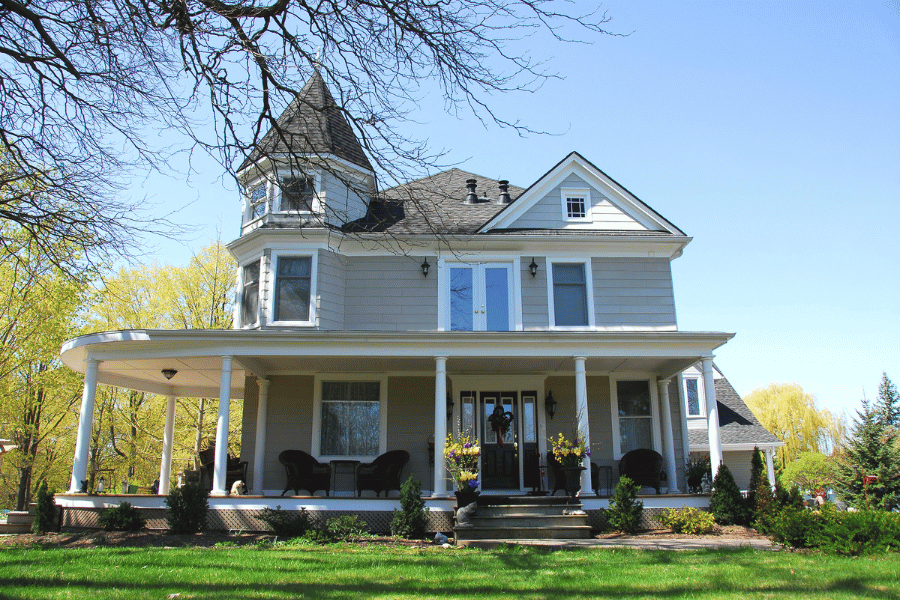
3. Pro: Higher Return on Investment
Historic homes in well-maintained historic districts often appreciate at rates equal to or exceeding comparable modern properties. The scarcity of historic home styles plays a significant role in this.
Not only do these homes offer a higher return on investment, but historic properties also offer a unique appeal and a cool piece of history that many people are interested in having. Properly restored historic homes can command premium prices, especially in neighborhoods where people are willing to pay for architectural significance.
Additionally, historic homes in designated districts tend to be protected from incompatible development, which helps maintain neighborhood character and property values. Often appreciating faster than some newer homes in the same area, historic homes tend to be less affected by market downturns, which further adds to the value.
4. Pro: Financial Assistance For Renovations
Beyond tax incentives, historic homeowners may qualify for grants, low-interest loans, and other financial assistance programs specifically designed to support preservation efforts for homeowners looking to renovate their new property.
Local preservation groups and municipal programs sometimes provide matching grants for exterior restoration work, particularly for properties in designated historic districts. These resources can help offset the costs of maintaining your historic property to appropriate standards.
In North Carolina, check out these grants available for historic home renovations:
- The North Carolina Preservation Consortium offers grants of up to $2000
- The Paul Green Foundation offers grants of $500 to $2,500
- The Historic Wilmington Foundation offers grants for exterior repairs of homes in the Wilmington National Register Historic District
Check out these loans available for historic home renovations:
- The Fannie Mae Homestyle Renovation Loan
- Freddie Mac's CHOICERenovation
- The Title 1 Loan allows for $25,000 for minor repairs
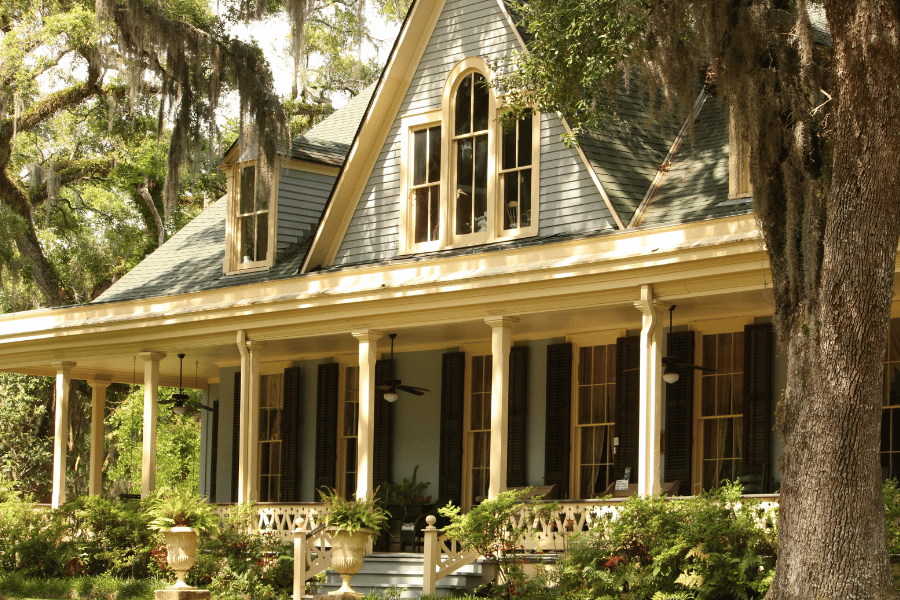
5. Pro: Joining a Community Full of Character
Historic neighborhoods attract residents who share a passion for preservation, architecture, and community engagement. These areas often have active neighborhood associations, regular historic home tours, and social events that foster a strong sense of belonging.
Living in a historic district means joining a community of like-minded individuals who appreciate the unique character of their surroundings and work together to maintain the neighborhood's integrity. This sense of community and shared purpose is often more pronounced in historic areas than in newer developments.
Many new neighborhoods are popping up all over Raleigh and the surrounding Triangle area, but sometimes, these communities lack the distinct character and unique charm that historic districts have.
Not only do historic districts help preserve history, but they also have less owner turnover since homeowners consider these properties a good investment and want to live there for a long time.
6. Con: Stricter Regulations
Historic homes, particularly those in designated historic districts or listed on the National Register of Historic Places, are subject to regulations that do not apply to conventional properties.
In North Carolina, the Historic Preservation Ordinance safeguards the property's heritage and preserves districts and landmarks important to culture and history. Any exterior modifications, including paint colors or replacing windows, typically require approval from a local Historic District Commission or architectural review board.
These bodies evaluate whether proposed changes are appropriate to the property's historic character, and the approval process can be time-consuming and sometimes result in denials or required modifications to your plans. This loss of autonomy can be frustrating for homeowners accustomed to making immediate decisions about their property.
Unfortunately, these strict regulations limit property owners' rights in the name of preservation and rehabilitation. Most historic districts require building and alteration restrictions on the property, meaning significant changes to the historic home can not be made.
7. Con: Complicated and Specialized Renovations
Renovating a historic home requires specialized knowledge, materials, and craftspeople that are not always readily available. Period-appropriate materials like hand-forged hardware, true divided-light windows, or specific architectural elements may need to be custom-made or salvaged.
Finding contractors experienced in historic restoration is essential, but it can limit your options and extend project timelines. Additionally, renovation work may uncover unexpected issues such as structural problems that require specialized solutions to address while maintaining the home's historic integrity.
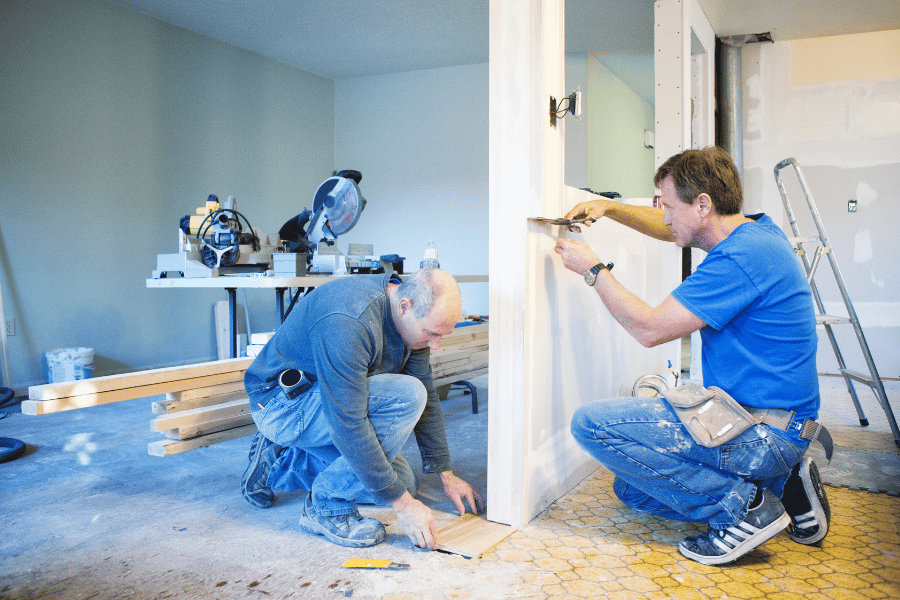
8. Con: Difficult To Arrange Financing and Insurance
Securing a mortgage for a historic home can be more challenging than for conventional properties. Some lenders are hesitant to finance homes requiring significant restoration work or those with non-standard features that don't meet modern building codes.
Most lenders require additional loan guarantees, such as specific information about the deed or historic designation, before qualifying a property for a loan. While certainly possible to obtain, sometimes older homes may not meet the specific requirements for typical VA or FHA loans, which many homebuyers apply for.
Additionally, getting adequate insurance coverage can be problematic and expensive. Historic homes may have features that insurance companies consider high-risk, such as knob-and-tube wiring, old plumbing systems, or irreplaceable architectural details. Some insurers specialize in historic properties but may charge premium rates, and coverage limits for restoration costs can be difficult to negotiate.
Sometimes, historic homes can be insured on a standard home insurance policy. Still, they often require a unique policy if they are listed on the National Register of Historic Places or recognized locally as historic properties.
9. Con: Costly Repairs and Maintenance
Historic homes typically require more frequent and expensive maintenance than newer properties. Original materials, while often of superior quality, eventually need repair or replacement, and doing so appropriately can be costly.
Repairing plaster walls is more expensive than patching drywall. Restoring original windows costs more than installing vinyl replacements. Maintaining period-appropriate landscaping, addressing foundation settling, and preserving decorative elements all require ongoing investment.
Older homes are known to have hidden problems that can arise at any time and lead to expensive repairs, especially if there are structural issues, such as a roof that needs repair.
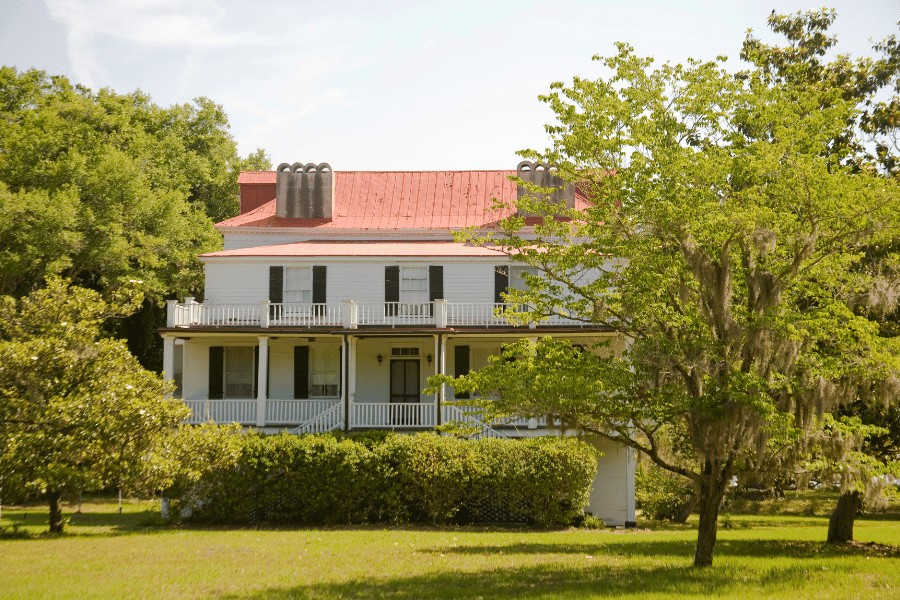
10. Con: Not as Safe or Energy Efficient
While it depends on the age of the home, most historic homes are not considered as safe or energy efficient as modern homes due to older building materials and the lack of contemporary insulation that homes have now.
Older homes were built before modern building codes, energy standards, and safety regulations were established. They may lack adequate insulation, have single-pane windows, and feature inefficient heating and cooling systems that result in high utility bills.
Achieving modern energy efficiency in a historic home is possible, but typically requires greater investment than in new construction.
Safety concerns can include outdated electrical systems, lead paint, asbestos insulation, and inadequate emergency exits from second-story bedrooms. While many of these issues can be addressed, doing so while maintaining historic integrity requires careful planning and often creative solutions.
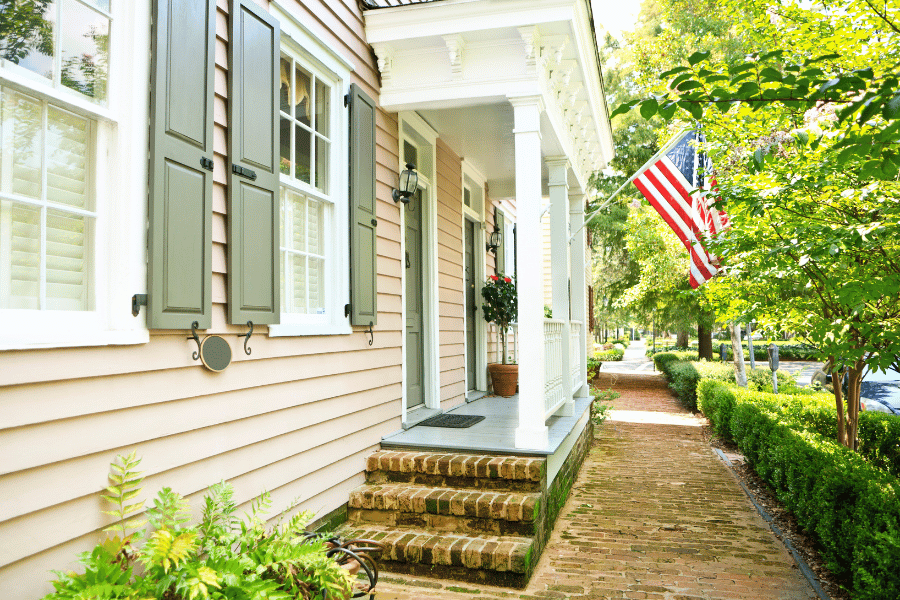
Methodology
We used data and information from the Raleigh Historic Development Commission, the National Park Service, and Bankrate to determine the pros and cons of buying a historic home.
FAQs
Is buying a historic home a good investment?
Historic homes are charming and tend to have a higher property value due to their historical significance and demand in certain districts. Once you buy, repair, and hold on to a historic home, it can be an excellent investment.
Is it worth upgrading an old house?
As long as you are willing to put in the work and spend the time renovating, upgrading an old house is worth it. Often cheaper than building a new house, renovating can help you preserve the home's history while creating a unique living space that fits your needs.
Do older homes hold their value?
Older homes are known to hold their value, which is why they are considered a good investment, especially if they are renovated and located in a well-established neighborhood.
Pros and Cons of Buying a Historic Home - Final Thoughts
Whether you are drawn to the timeless elegance of a historic estate or prefer the convenience of modern construction, our experienced team is here to help you navigate the Raleigh real estate market and find the home where you will love to live.
If you are considering a historic home, the experts at Raleigh Realty are prepared to help you find your dream home in Raleigh and the Triangle. Please feel free to contact us today.
